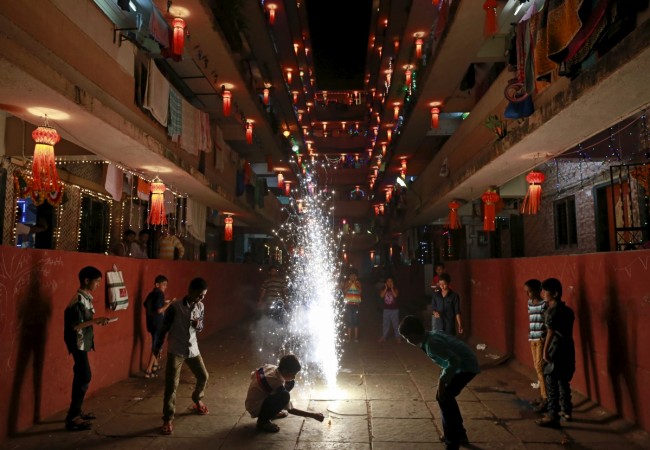The Supreme Court in a welcome judgment on Tuesday ruled against the imposition of a complete ban on firecrackers this Diwali. The Supreme Court has instead banned the online sale of firecrackers which will restrict e-commerce sites from selling them on their portals. The apex court also said that the sale of only green firecrackers will be allowed and that too through only licensed traders. The apex court in its ruling has also fixed a time schedule in which the bursting of firecrackers will be allowed during Diwali and other festivals. The Supreme Court has allowed bursting of firecrackers between 8 PM to 10 PM on the day of Diwali while on the occasions of Christmas and New Year it will be allowed only between 11:45 PM to 12:45 AM and that too only in designated areas. The PIL seeking ban on firecrackers was filed by kid petitioners– Arjun Gopal, Aarav Bhandari and Zoya Rao Bhasin, all of whom fall in the age bracket between three and four years. Their lawyer Gopal Sankaranarayanan was seeking a complete ban on the sale and purchase of crackers. The judgment has also asked the Centre to encourage community cracker bursting during festivals in Delhi-NCR regions.
The Supreme Court bench of Justices A K Sikri and Ashok Bhushan had reserved their judgment on this matter on August 28th. Their decision which came out today is a welcome move from the earlier stance of the SC which had come out last year. This indicates that the apex court is looking for ways to reduce unnecessary interference in matters of Hindu faith. The court has also put out guidelines indicating which products can and cannot be ignited, bursting crackers which produce sounds within the permissible decibel range have been allowed while it disallowed the sale of crackers which have materials like Barium which harm the environment.
“SC has also directed the various state pollution boards and the Central pollution Board to measure the particulate matter seven days ahead and after Diwali”, said Vijay Panjwani, advocate of CPCB. The SC observed that prior to applying a countrywide ban on the crackers it also had to take into consideration Article 21 of the Constitution which applied to the manufacturers of firecrackers as well.
While everybody would agree that burning huge amount of crackers poses a menace to the environment but the issue is raised always around the Hindu festival of Diwali. There are hundreds of other activities which have a drastic impact on the environment, the use of SUVs, burning of stubble from farms and other activities are yet to be taken up seriously in the country but somehow the PILs targeted just this event which comes once every year.
Last year too extensive studies had been carried during Diwali at the behest of the Central Pollution Control Board in and around Delhi. Maulana Azad Medical College had conducted research on the study by CPCB whose result clearly stated that bursting firecrackers during Diwali had no major impact on the air quality. To quote the Additional Director and head of Air Quality Management Division, Shri Prashant Gargava, “The respiratory system related symptoms and signs were not much different during pre and post-Dussehra and Diwali. Although there was some increase in a cough and breathlessness, but this did not translate into any significant illness requiring immediate medical attention. Other system related complaints were also not much during pre and post Dussehra and Diwali.” The apex court on 12th September, 2017 had imposed an outright ban on the sale of firecrackers in the Delhi-NCR regions.
This year’s decision has come in the right fashion by encompassing all festivals and celebrations in which firecrackers are used extensively. Some sections of the society might still have an objection to the time restrictions imposed by the SC judgment but the judgment needs to be applauded for taking consideration of the livelihood of people dependent on the cracker trade and of the sentiments of the Hindus for whom Diwali and its traditions are something close to their hearts.
